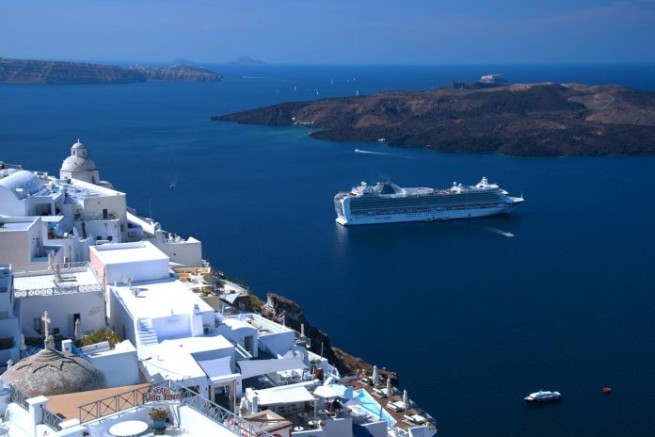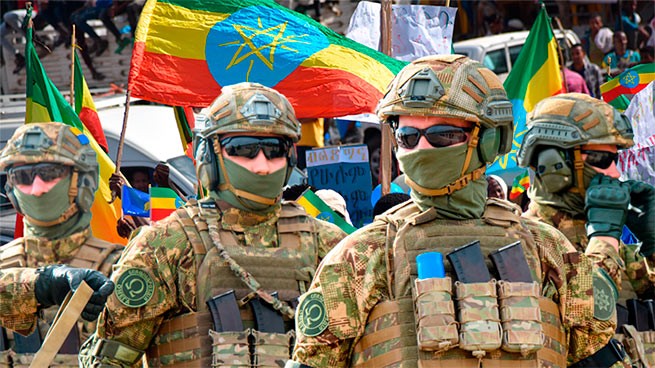Ankara’s growing activity manifests itself in several foreign policy areas at once. As you know, the current president of Turkey always plays his own games.
And this is perfectly confirmed by Erdogan’s position on the entry of Sweden and Finland into NATO. Ankara has blocked the process, but not at all because it is against the idea of expanding the alliance to the north of Europe. This is done solely in order to bargain for what the Turkish leadership considers right.
This list includes a ban on granting asylum (primarily in Sweden), and support for the Kurdistan Workers’ Party (PKK), which is officially considered a terrorist organization in Turkey, and Ankara’s connection to the program of supplying fifth-generation American stealth fighters F- 35, and the lifting of the ban on the purchase of Russian S-400s…
And if, under Trump, the United States denied Erdogan the right to Ankara’s participation in the F-35 program, precisely because of his intention to buy the S-400 from Russia, now, apparently, the Turkish leader intends to get both.
Erdogan plays for himself in relation to the Russian special operation in Ukraine. Turkey has repeatedly stated that it supports the territorial integrity of Ukraine and supplies it with its Bayraktar attack drones. At the same time, Ankara is trying to become a mediator and peacemaker between Kyiv and Moscow. Apparently, wanting to keep both countries as trading partners.
Last Thursday it became known that agreement reached The UN and Turkey with Russia and Ukraine on opening a corridor for the export of grain, and in the near future a meeting of representatives will be held in Istanbul to discuss this process.
But Turkey’s activity is more than enough, Ankara is showing it in several other foreign policy areas. Turkish-Greek relations escalated again. On June 1, at a meeting of the ruling Justice and Development Party faction in Turkey, Erdogan said that Ankara had denounced the agreement with Athens on the High-Level Strategic Council. And all because Turkey demands to abandon the deployment of weapons on the Greek islands in the Aegean Sea, and Athens does not agree with this approach.
Earlier this week, Turkish Foreign Minister Mevlut Cavusoglu again accused Greece of violating the status of the demilitarization of the islands in the Aegean Sea. At the same time, from his lips sounded clear threat: “the islands should be demilitarized, otherwise the issue of their ownership will be on the agenda.”
And these are not just words – they are reinforced by the military exercises of the Turkish armed forces, following one after another. These days, the next stage of the Efes-2022 maneuvers begins, with the participation of 10 thousand military personnel from 37 countries of the world, in the Izmir region. Experts note that Turkey’s military ally, Azerbaijan, is becoming an increasingly prominent player. The military-political rapprochement between Baku and Ankara noticeably alarms the authorities of Greece and Armenia.
In Athens, they are already seriously suggesting that the Turkish authorities are preparing their people for the possibility of a Greco-Turkish war. Capital, for example, writes in this regard that “paranoia has reached a dangerous level in Turkish politics, on television and, consequently, in Turkish society.”
Does Erdogan need a real war with NATO ally Greece? For now, this is an unanswered question. But Turkey has already become a real headache for the North Atlantic Alliance. As Die Welt writes, three recent decisions of the Turkish leadership “contradict the interests of NATO and create pretexts for disputes with allies.”
In addition to aggravating relations with Greece and preventing Sweden and Finland from joining the Alliance, this is also the beginning of a new military operation against the Kurds in northern Syria, which “has the potential to escalate differences between Turkey and its Western partners.”
The Turkish Armed Forces are “cleansing from terrorists” two settlements in Syria, according to Turkish media. Erdogan said Turkey is entering a “new phase” of the decision to create a 30-kilometer security zone in Syria. He called the goal of the military operation the “liberation” of the cities of Manbij and Tel Rifat: “Then we will do the same step by step in other regions. Let’s see who will support these legitimate security measures.”
It is impossible to ignore the domestic political background against which Erdogan’s growing international activity is developing. In June 2023, presidential and parliamentary elections will be held in Turkey, and the situation with the economy leaves much to be desired. The Turkish lira is depreciating, depreciating by 20% since the beginning of the year, and inflation in April, compared to its figures a year earlier, rose by 70%. The country’s gold and foreign exchange reserves continue to decline significantly.
Polls record a drop in the popularity of both Turkey’s ruling party and Erdogan himself. And in these conditions, any surprises in the foreign policy arena can be expected from the Turkish leader in order to raise the ratings within the country.
So that big question – Will Erdogan in this situation limit himself to the usual attacks of northern Syria and Iraq, or will he decide on a “small victorious operation”, for example, in the Aegean Sea, regardless of Greece’s membership in NATO?






More Stories
Poll: which European countries are ready to defend their homeland to the last
Greece must transfer the Patriot PAC-3 system to Ukraine with US “guarantees” against the Turkish threat
How will the confiscation of Russian assets affect the global financial system?